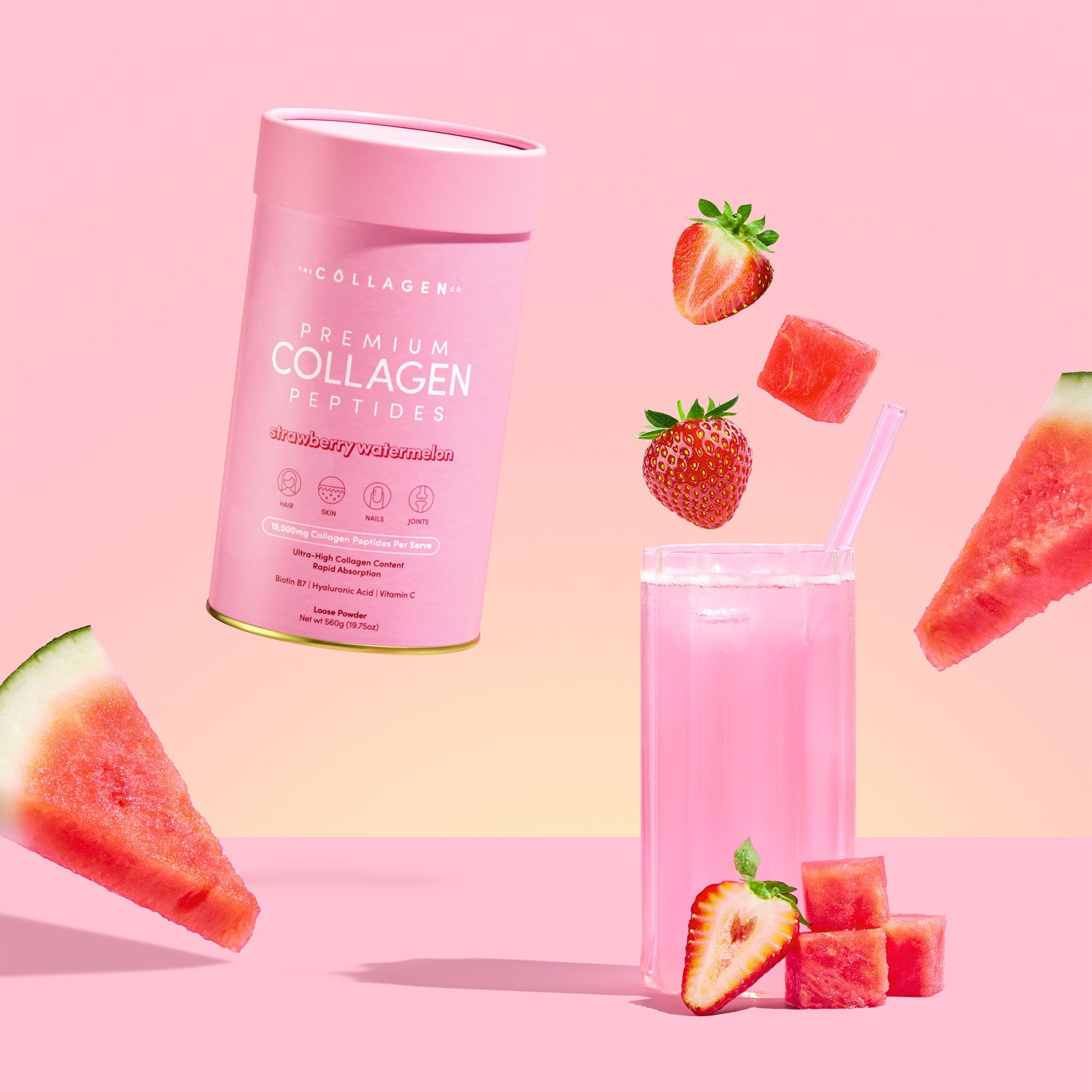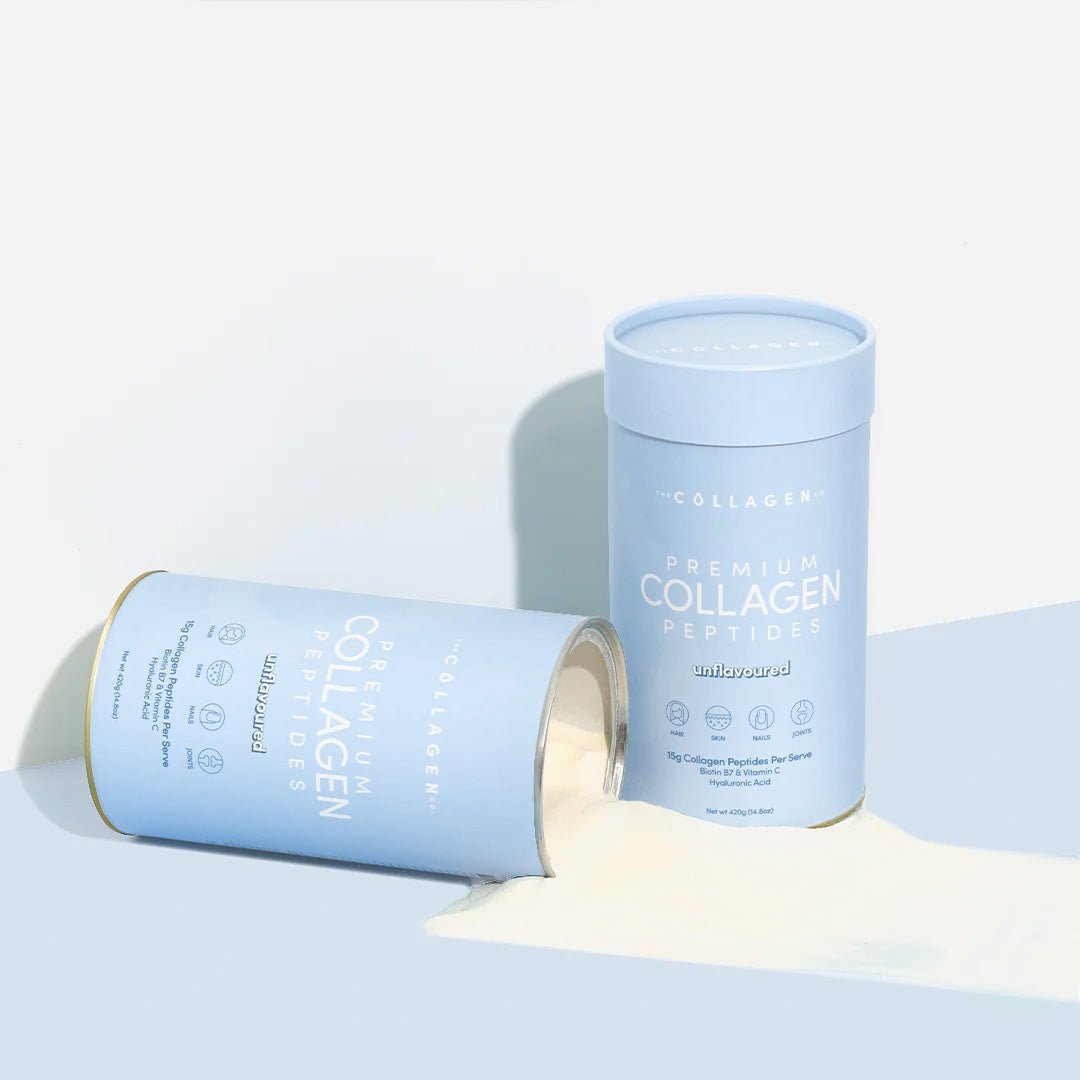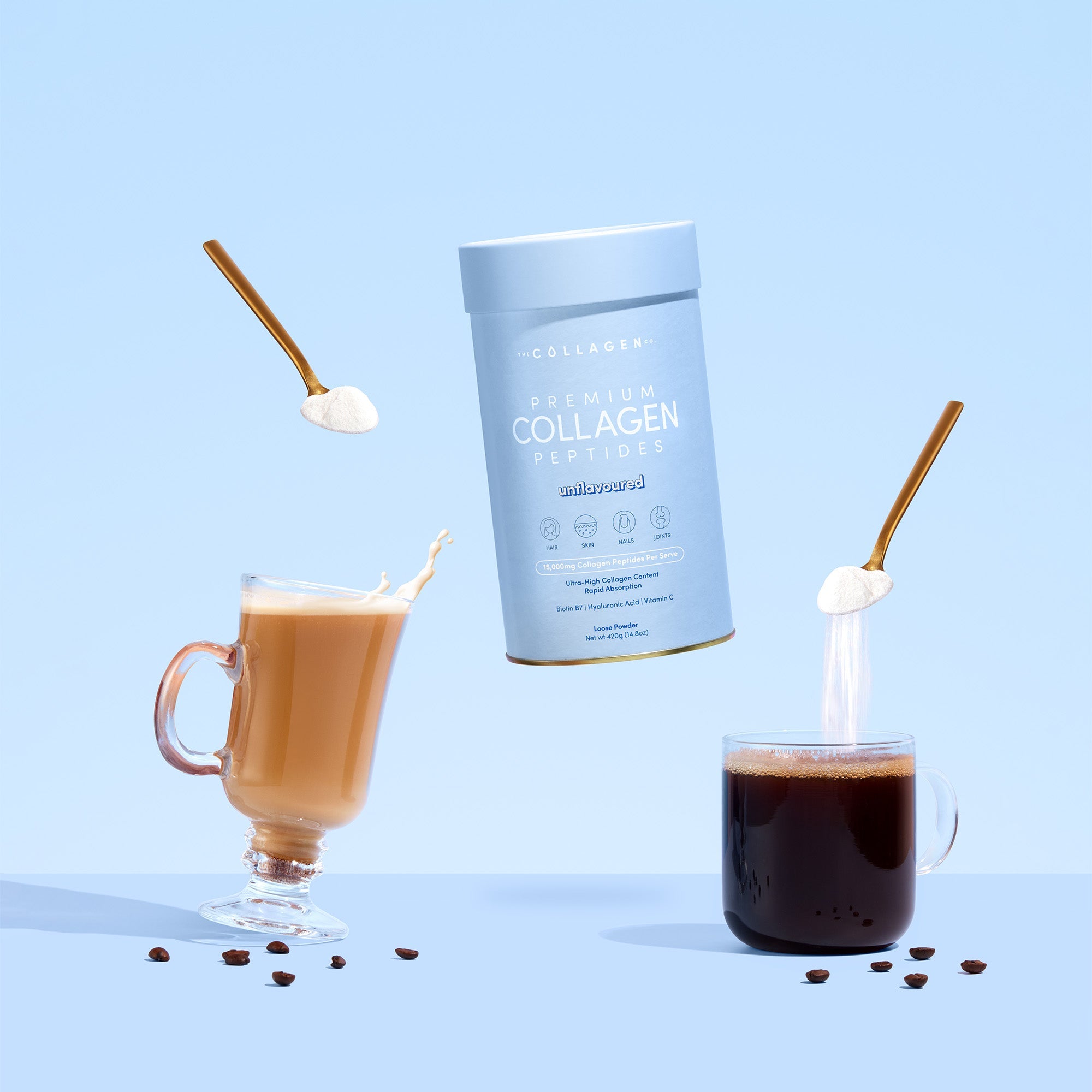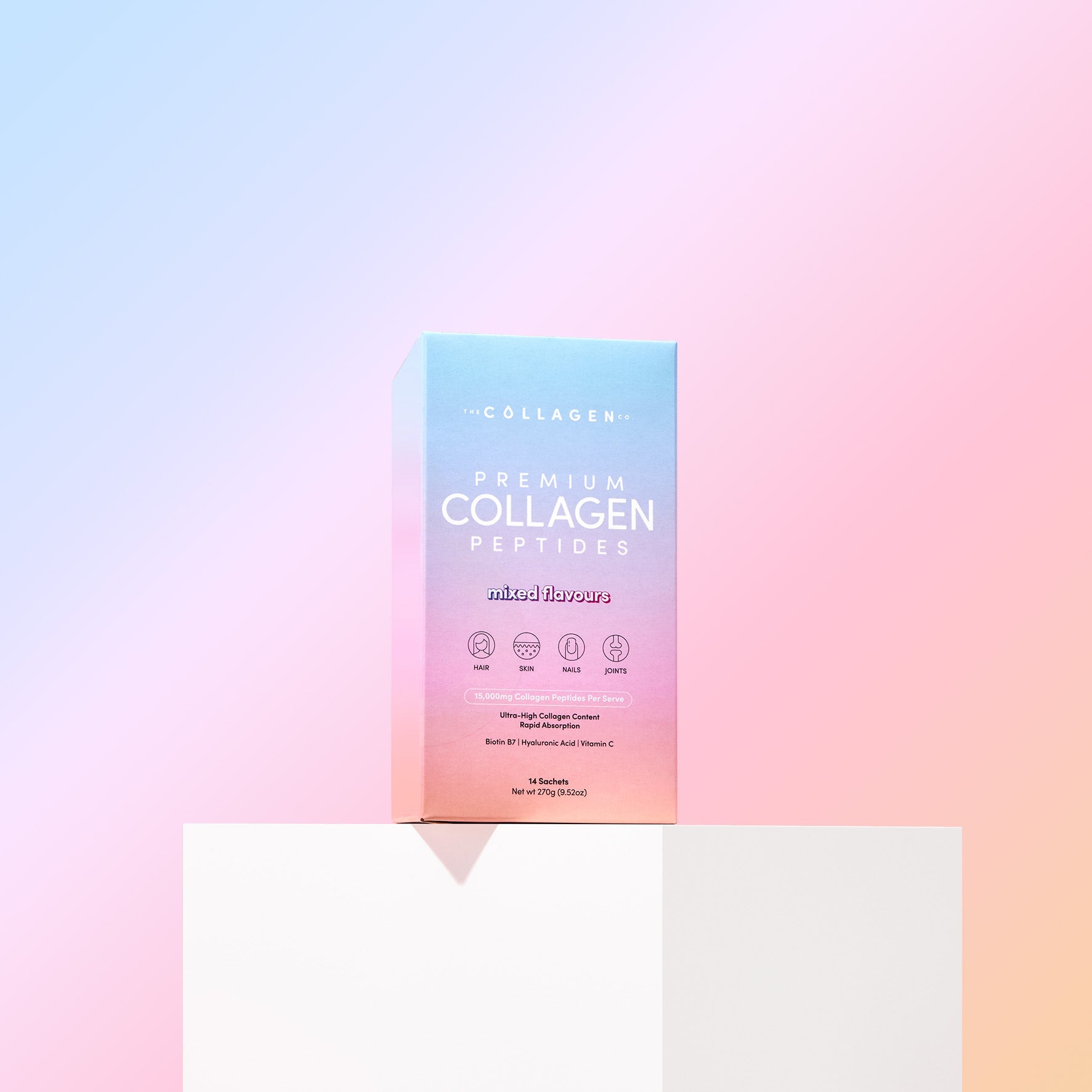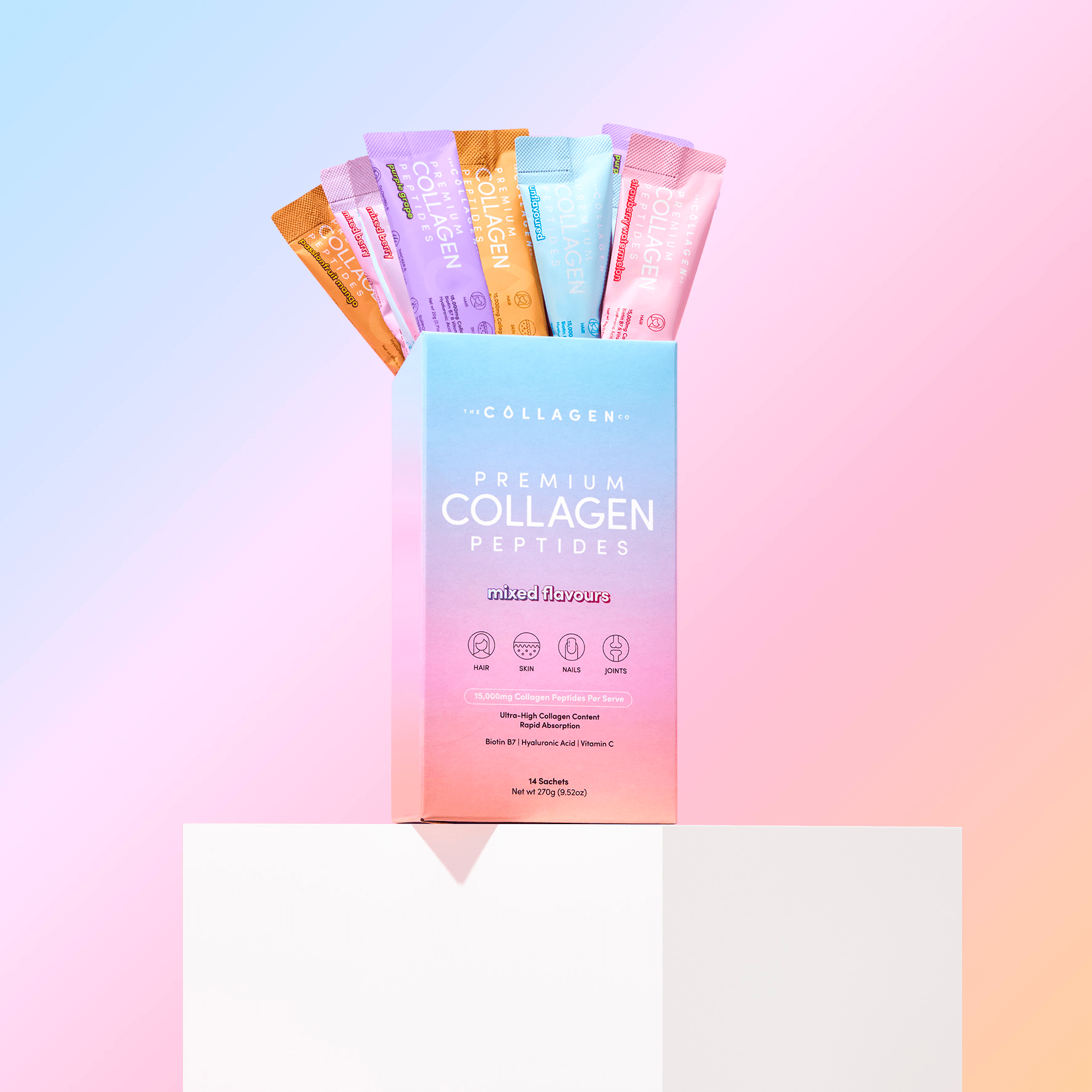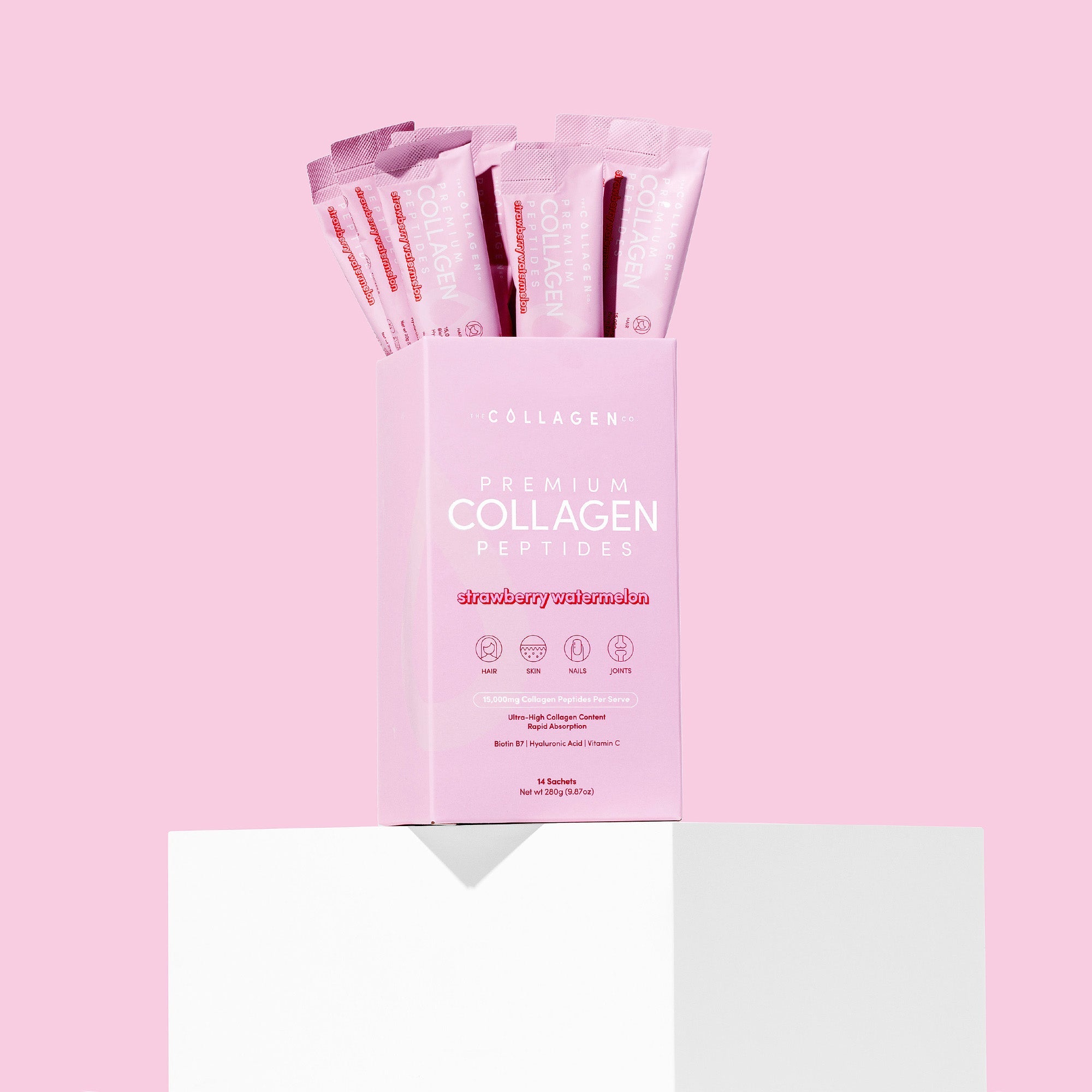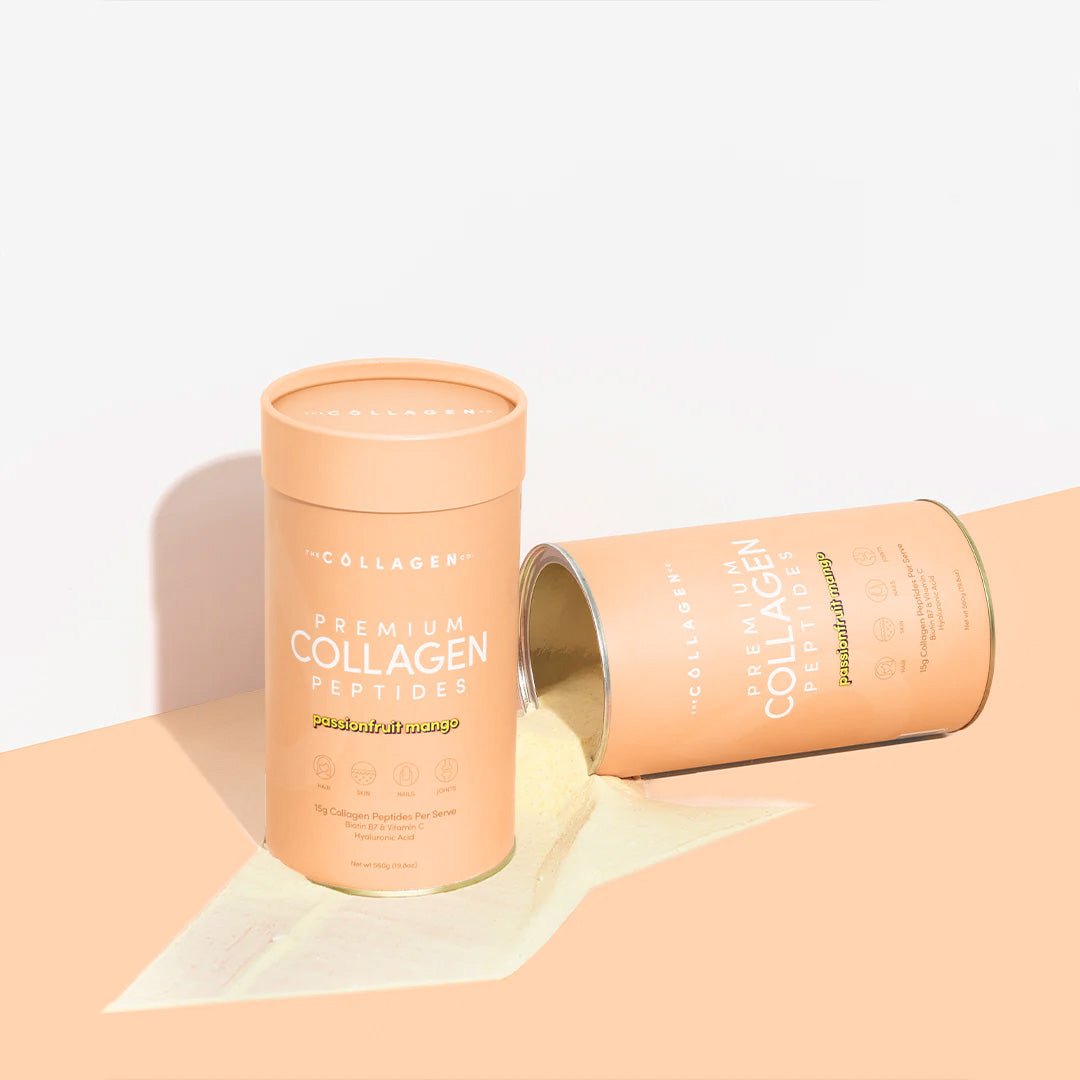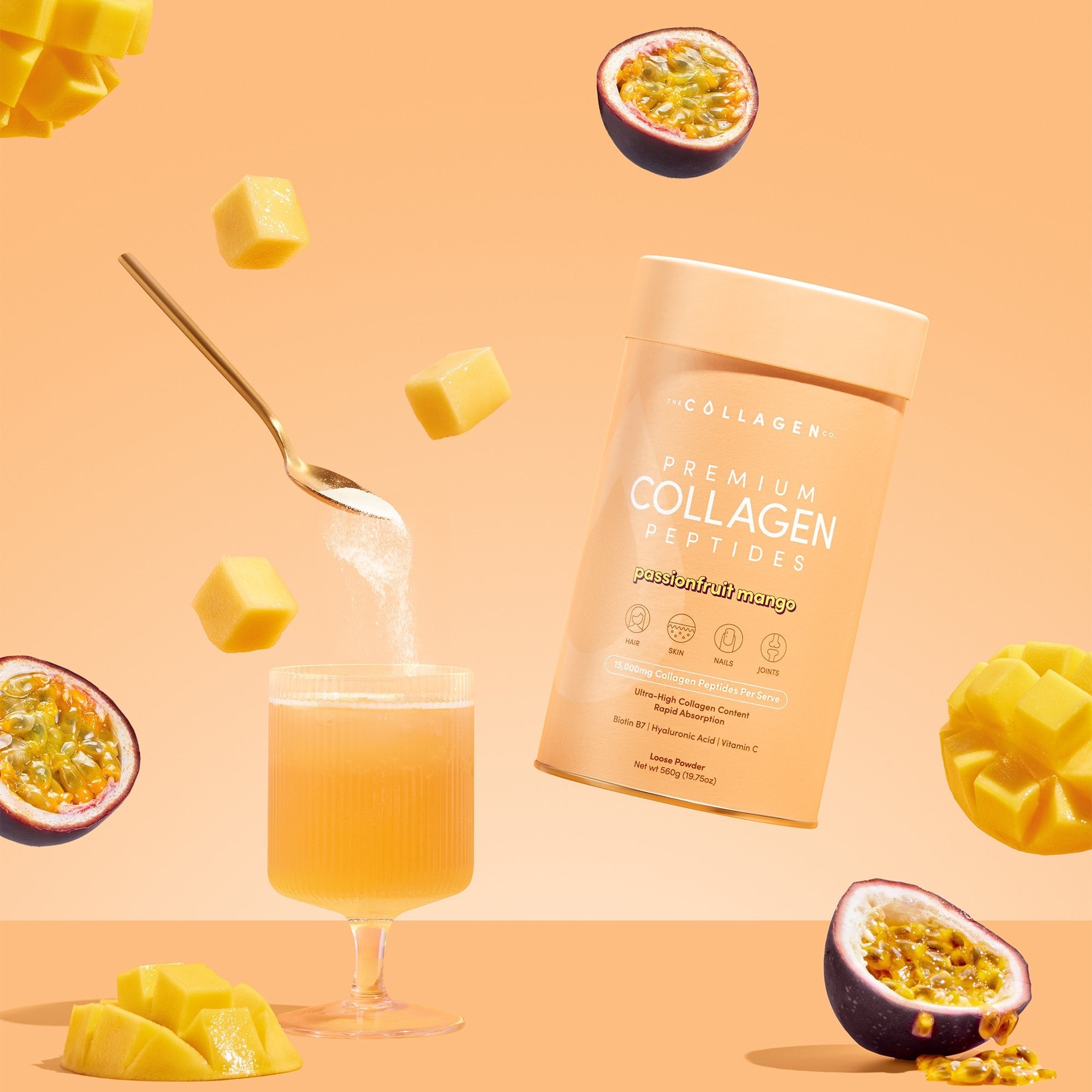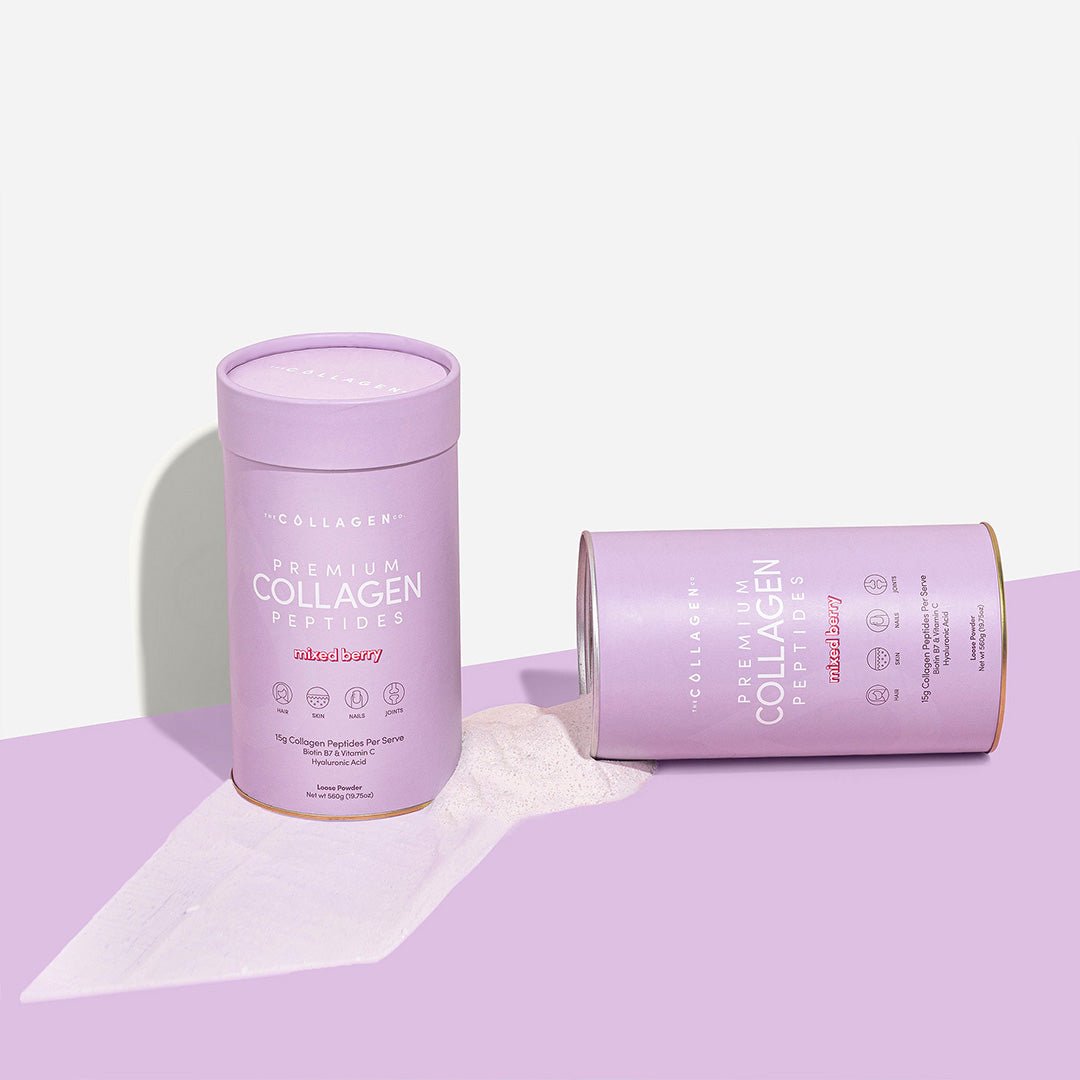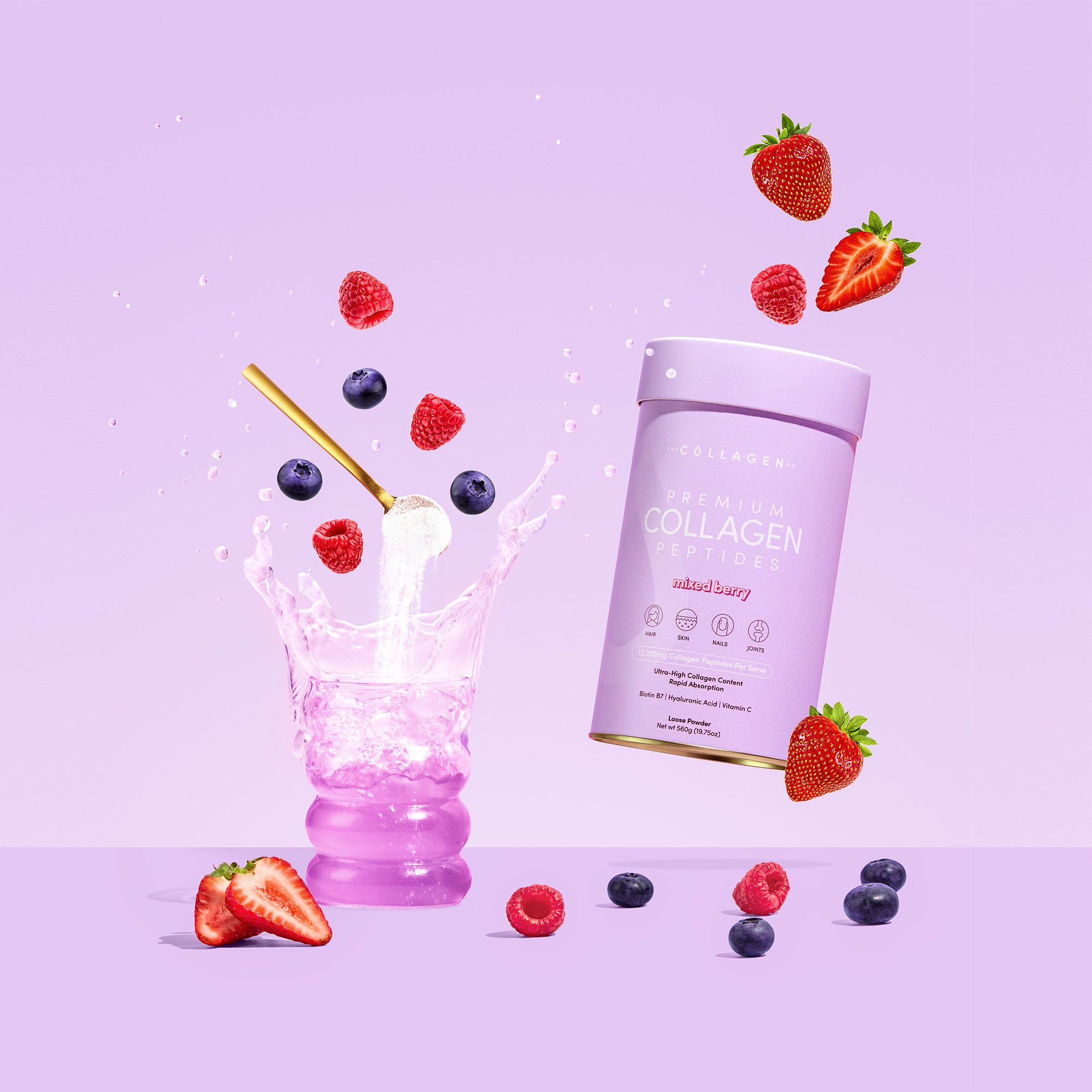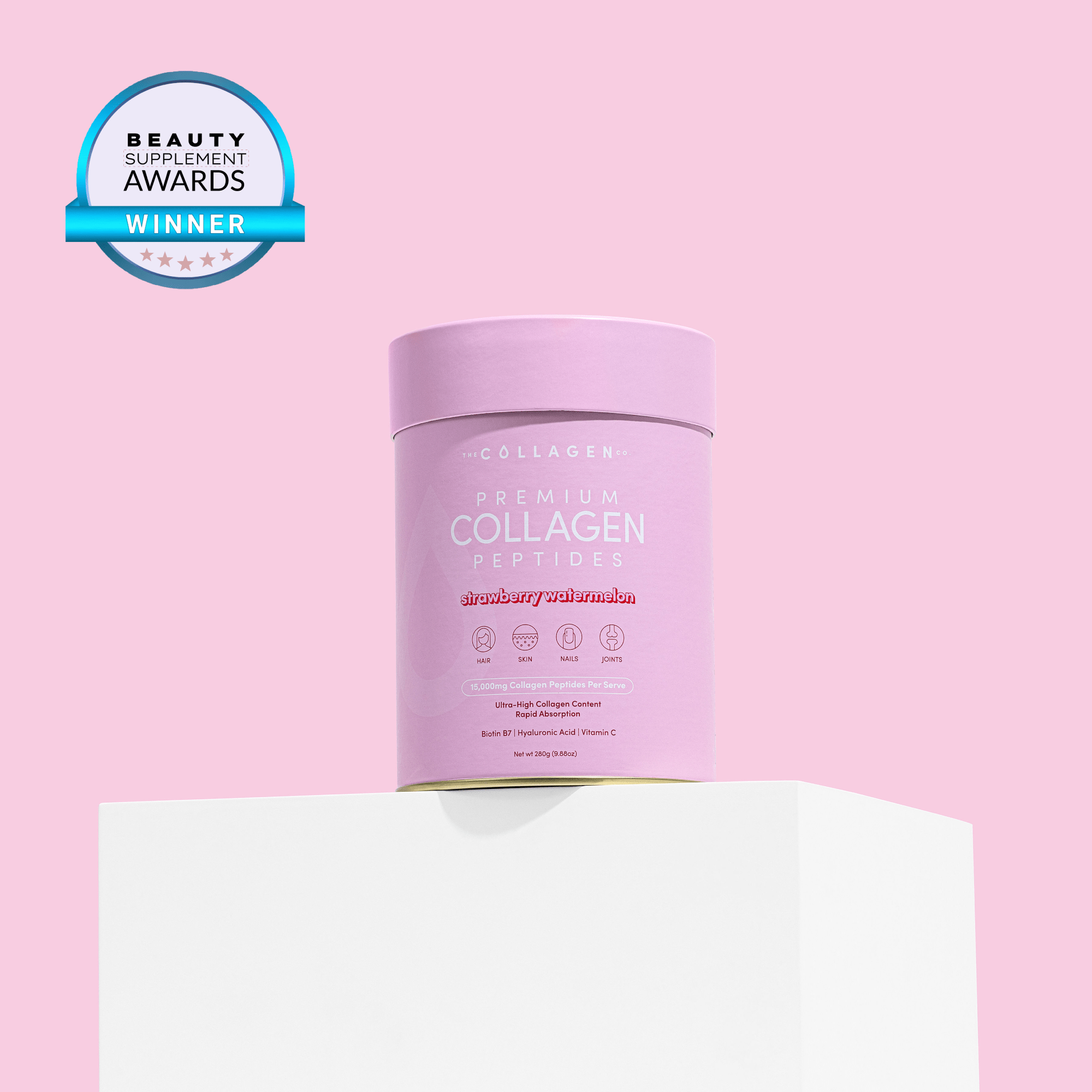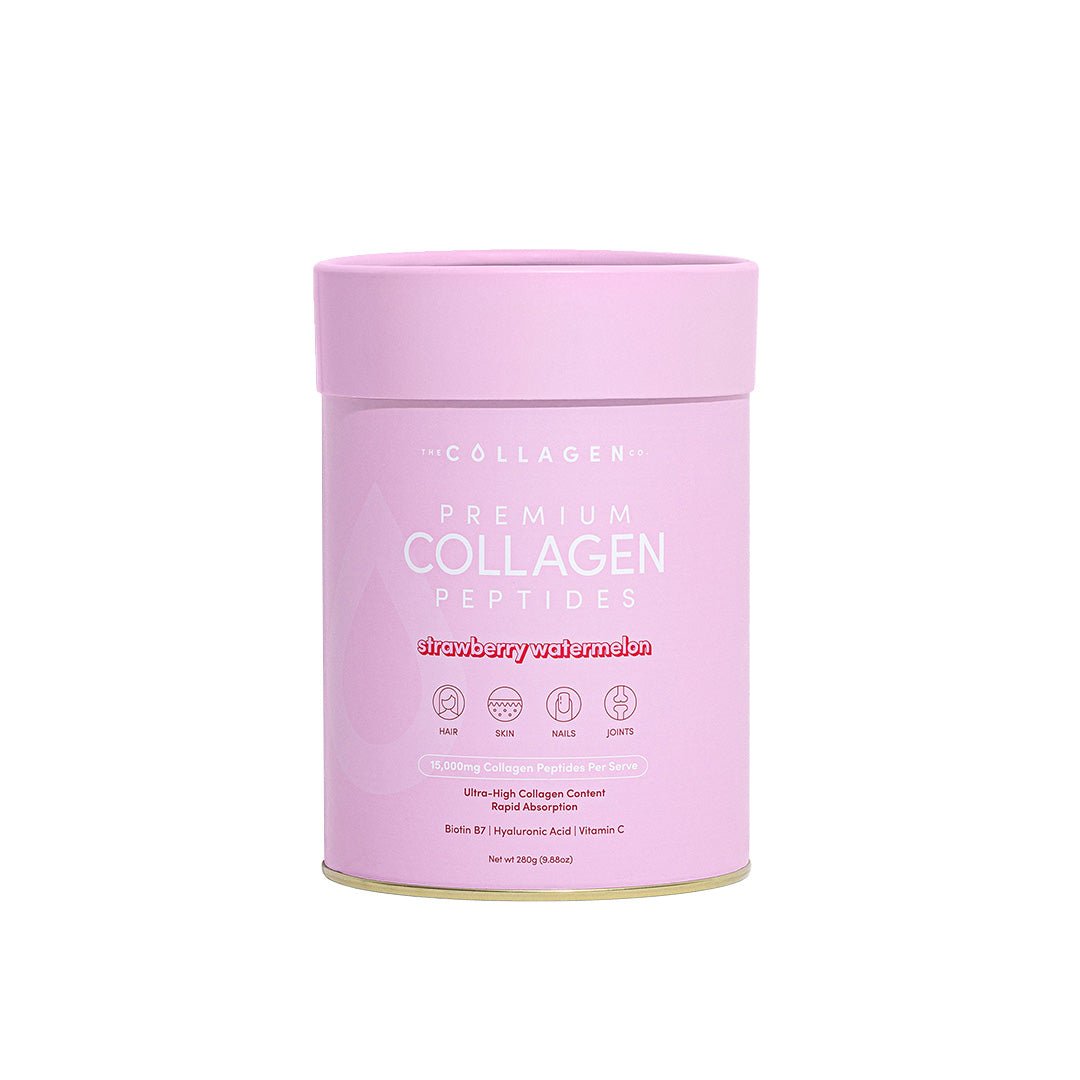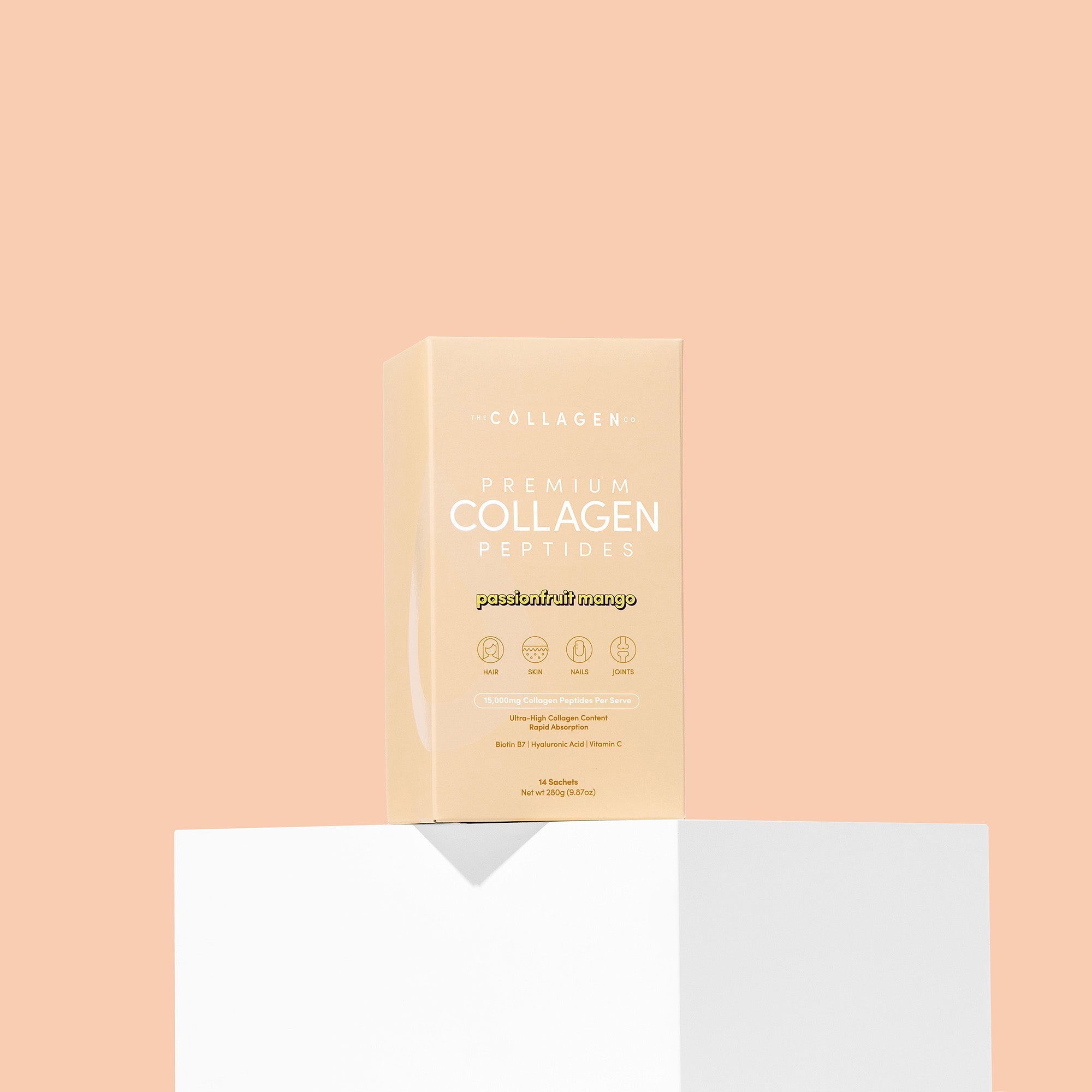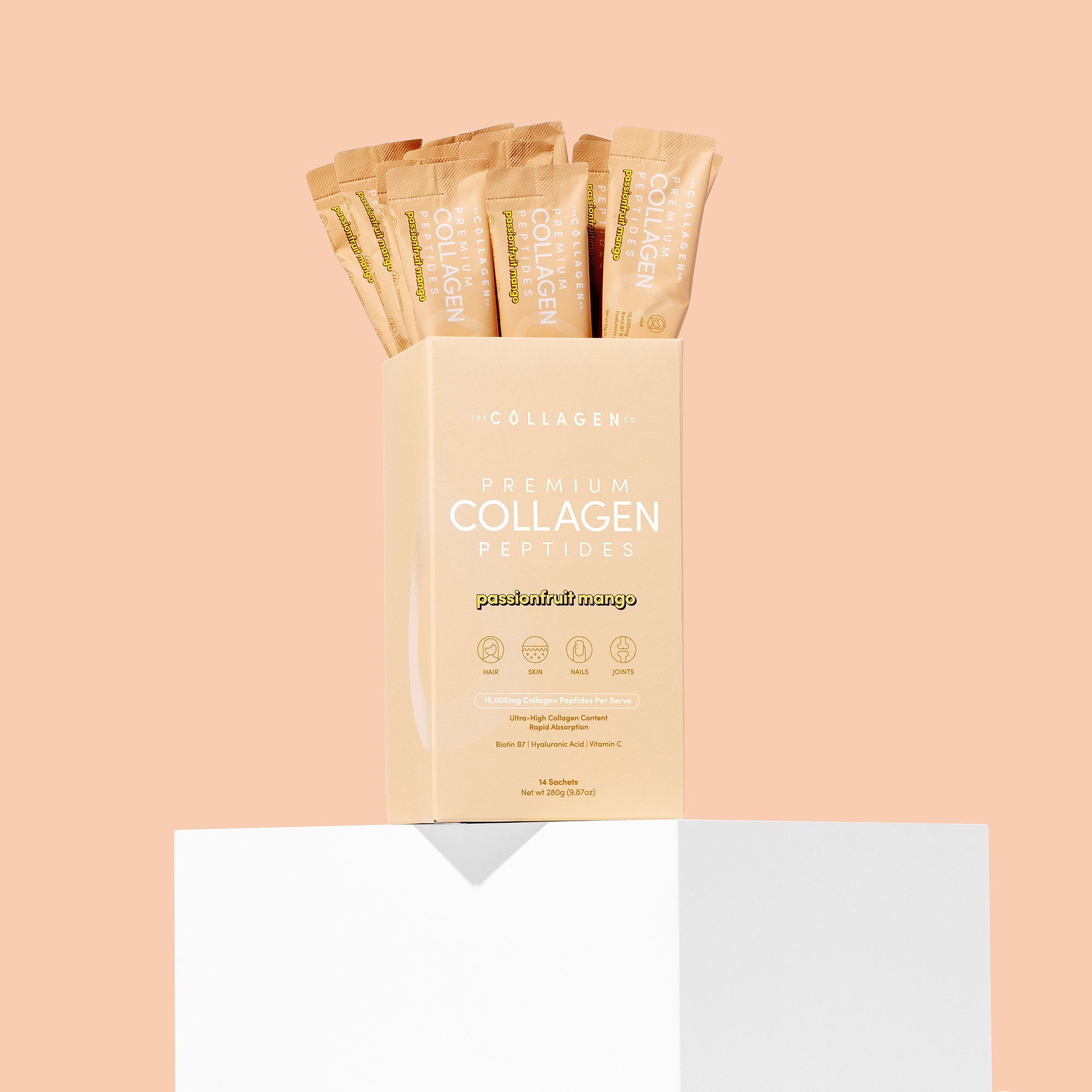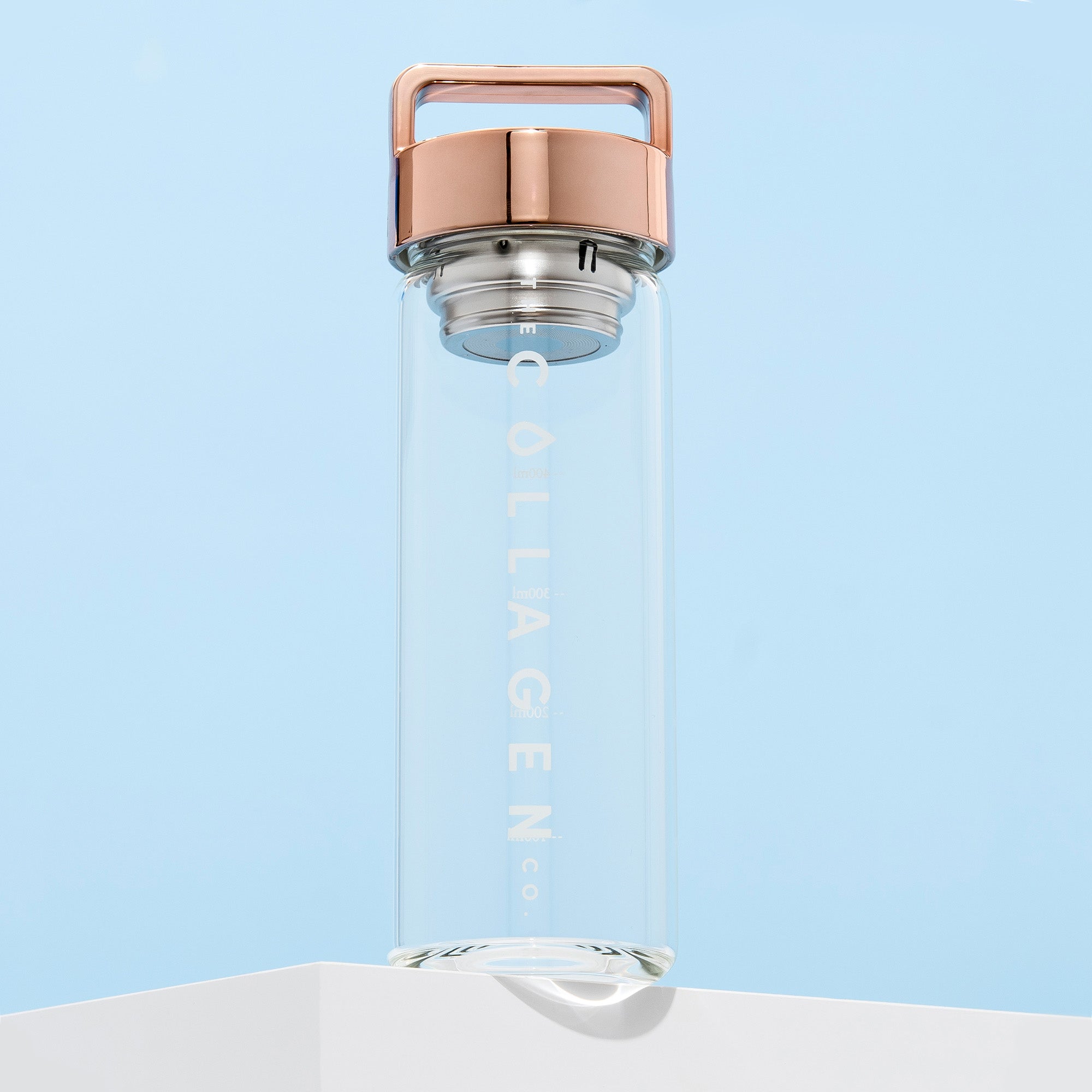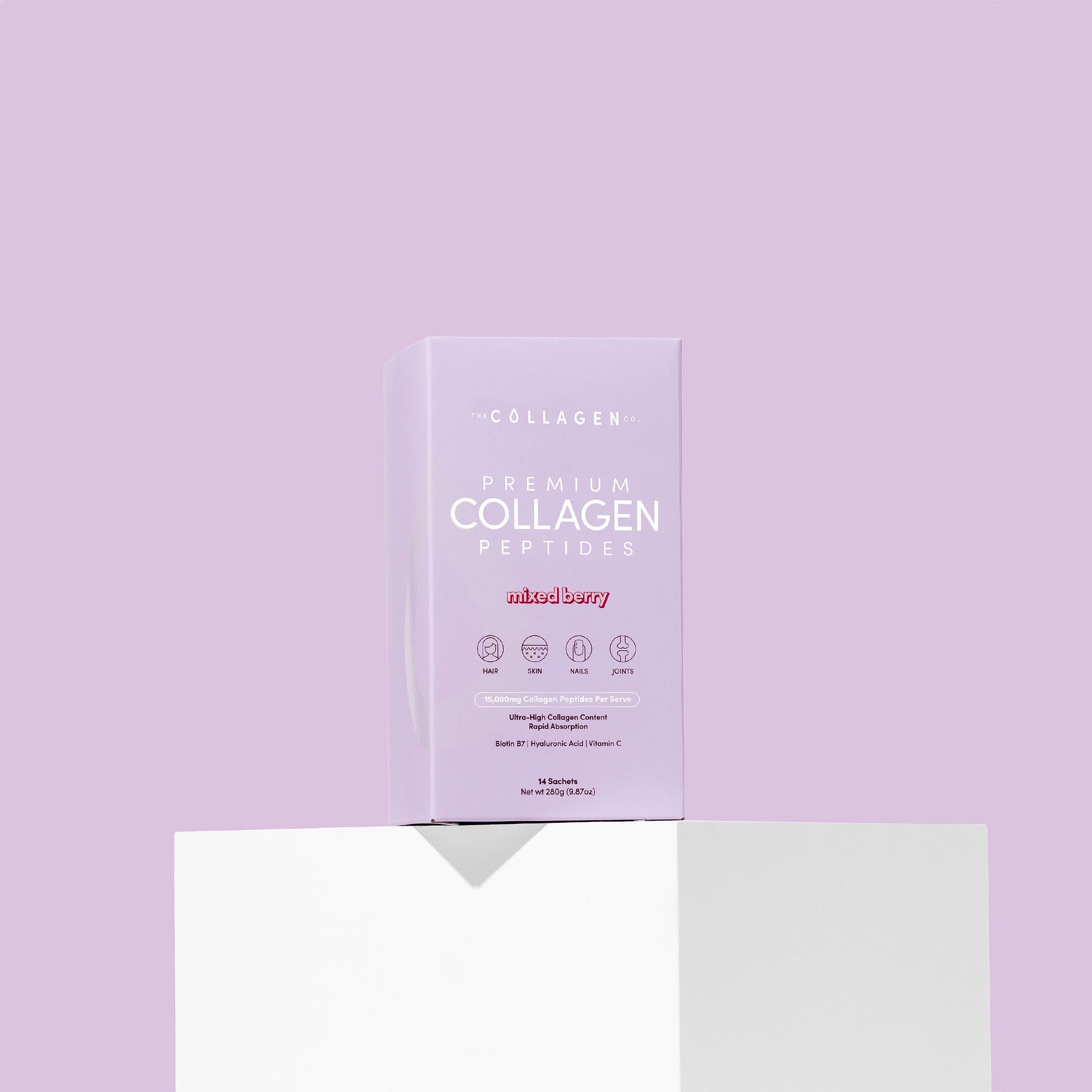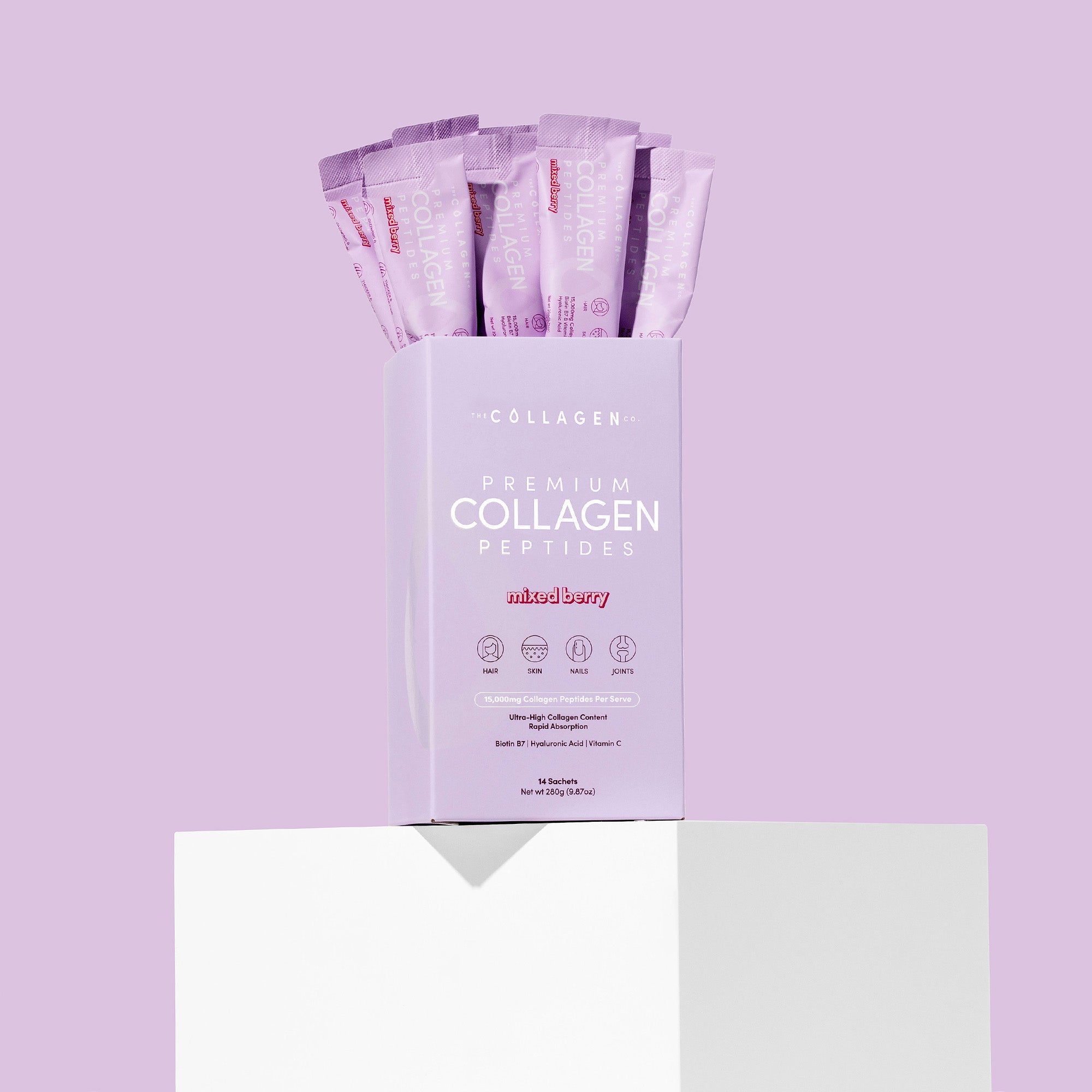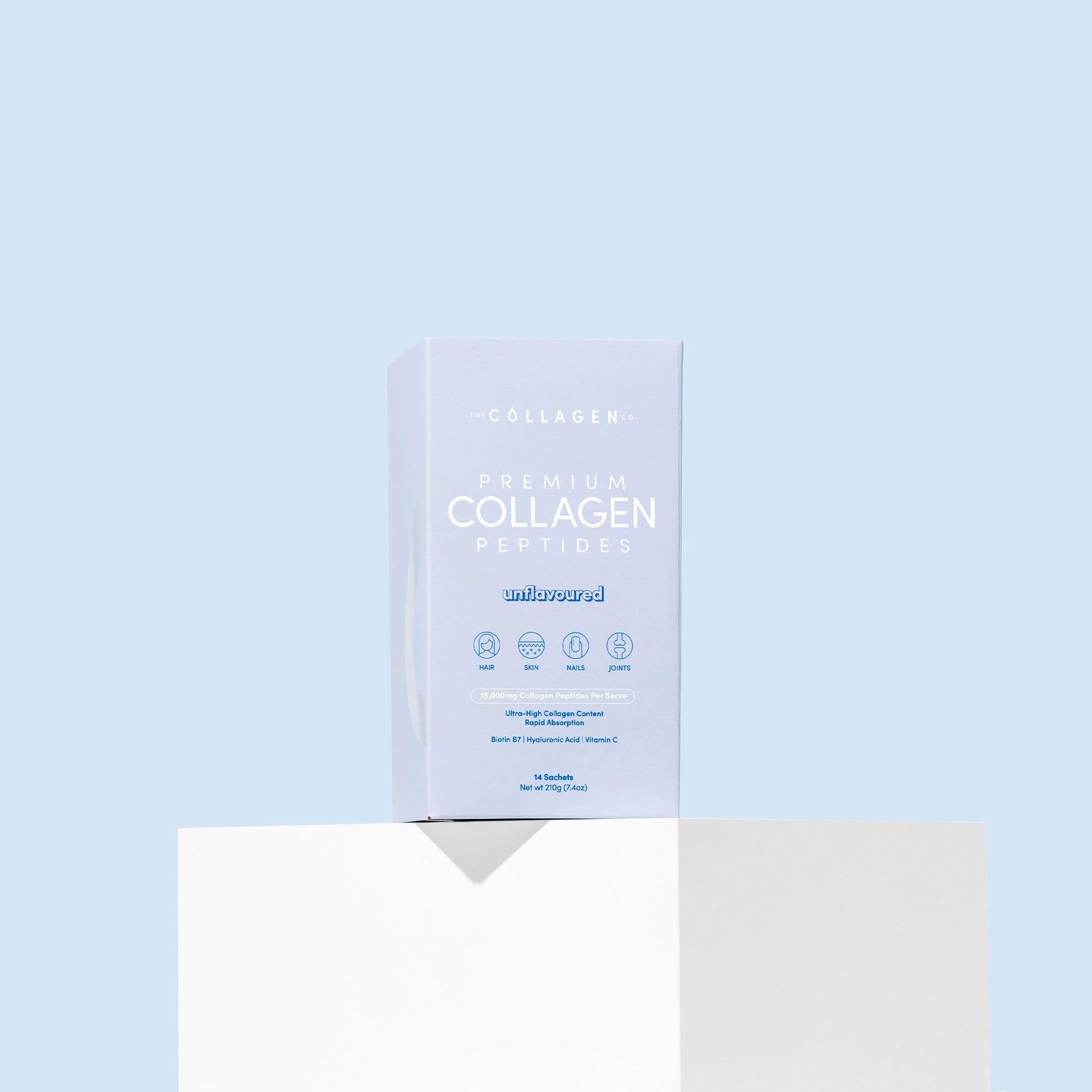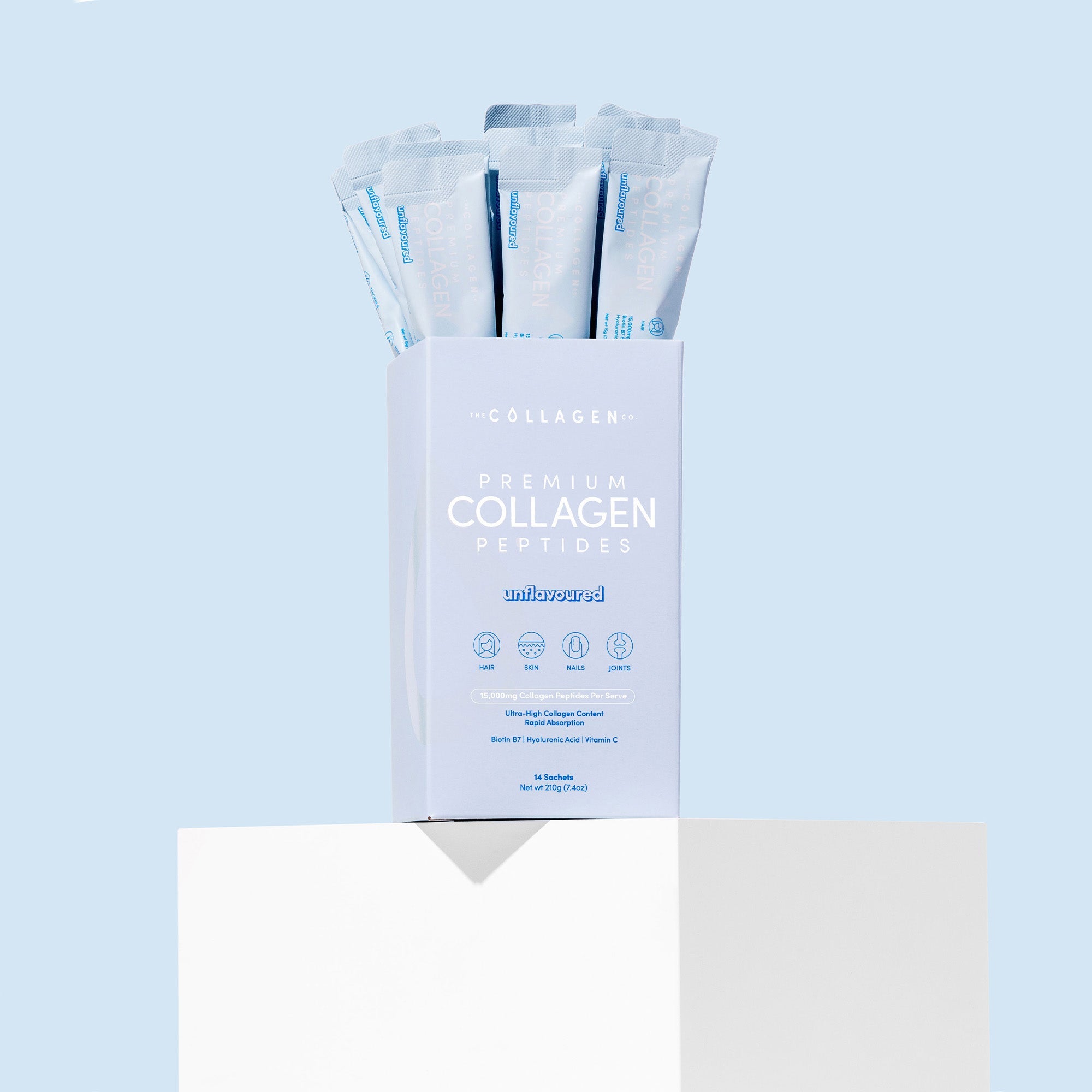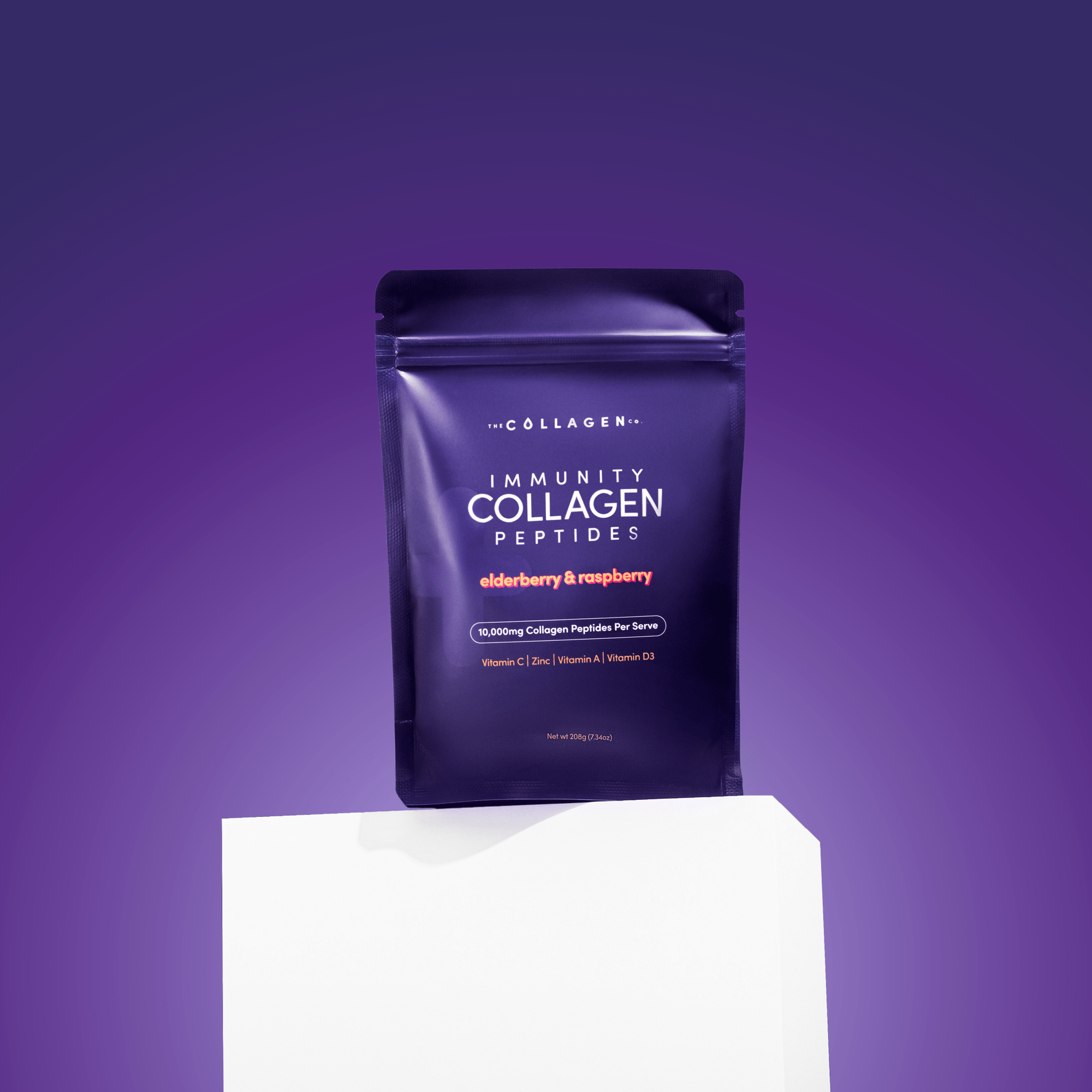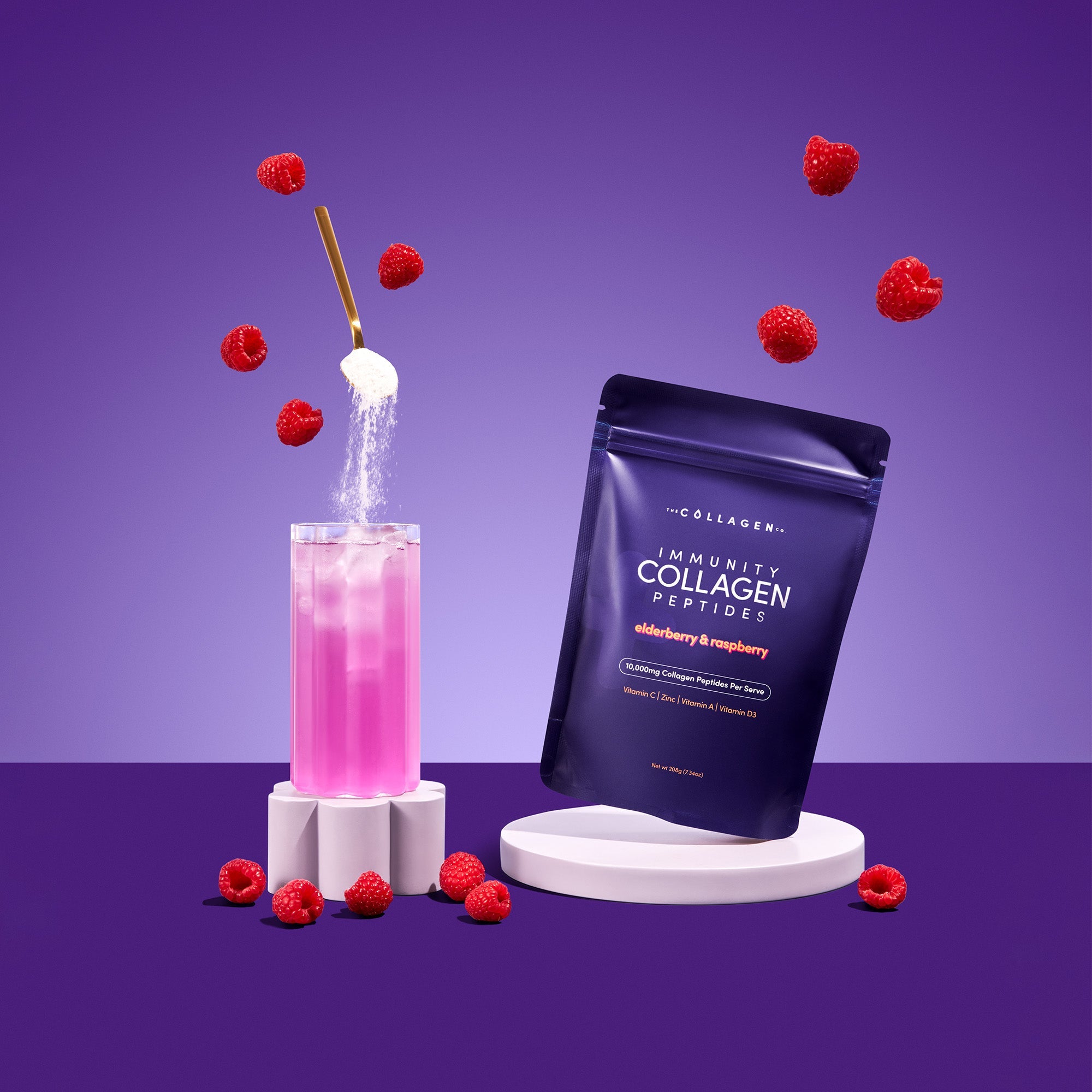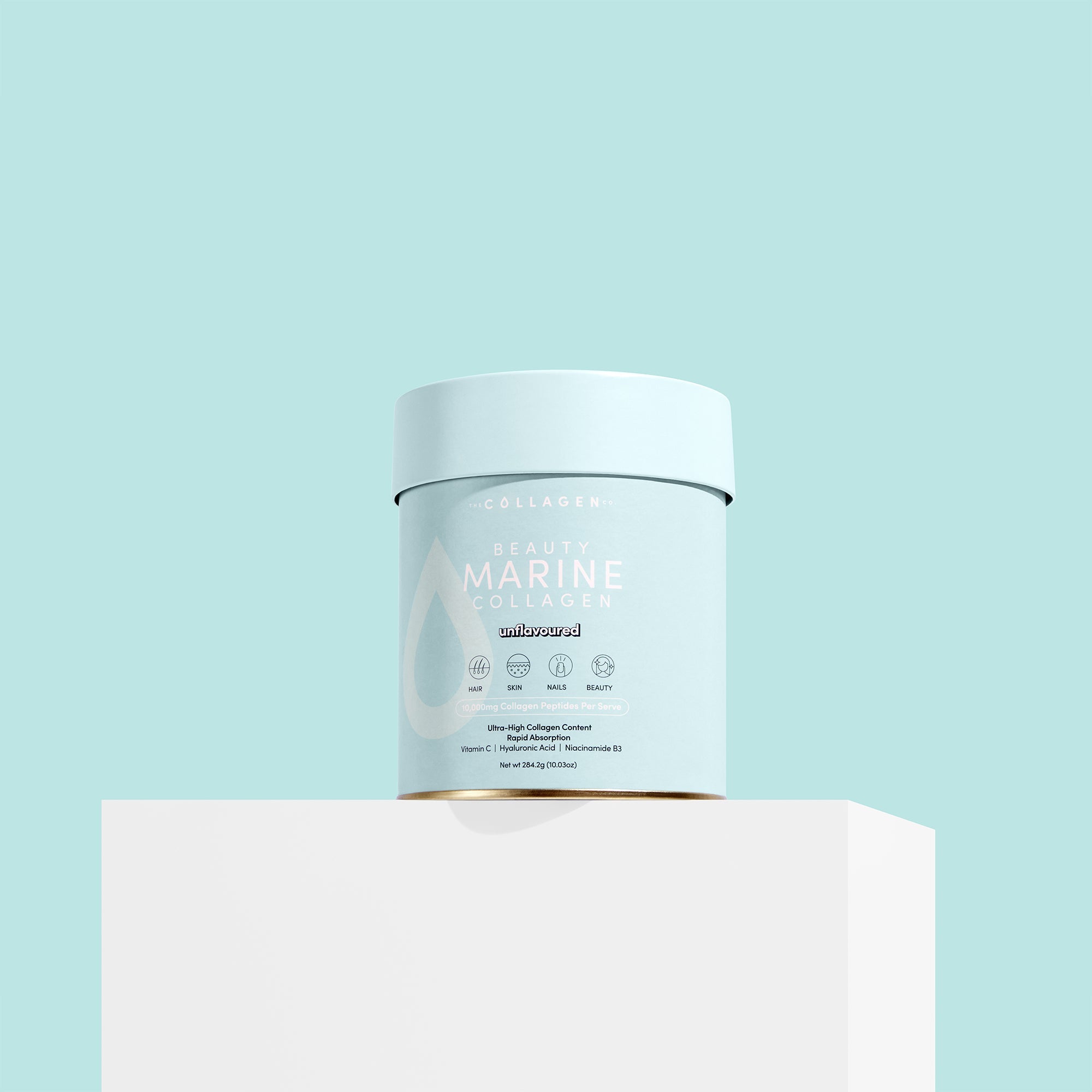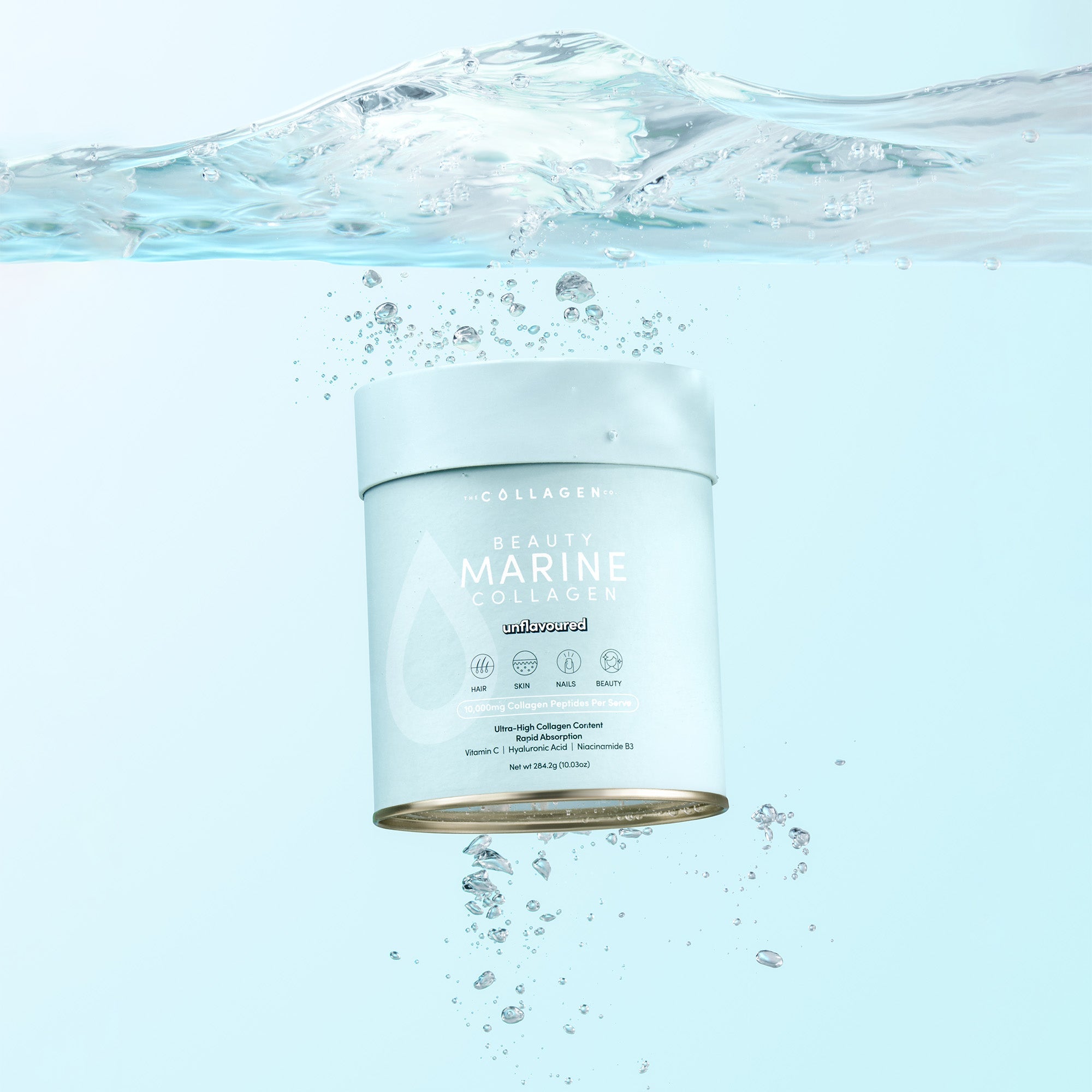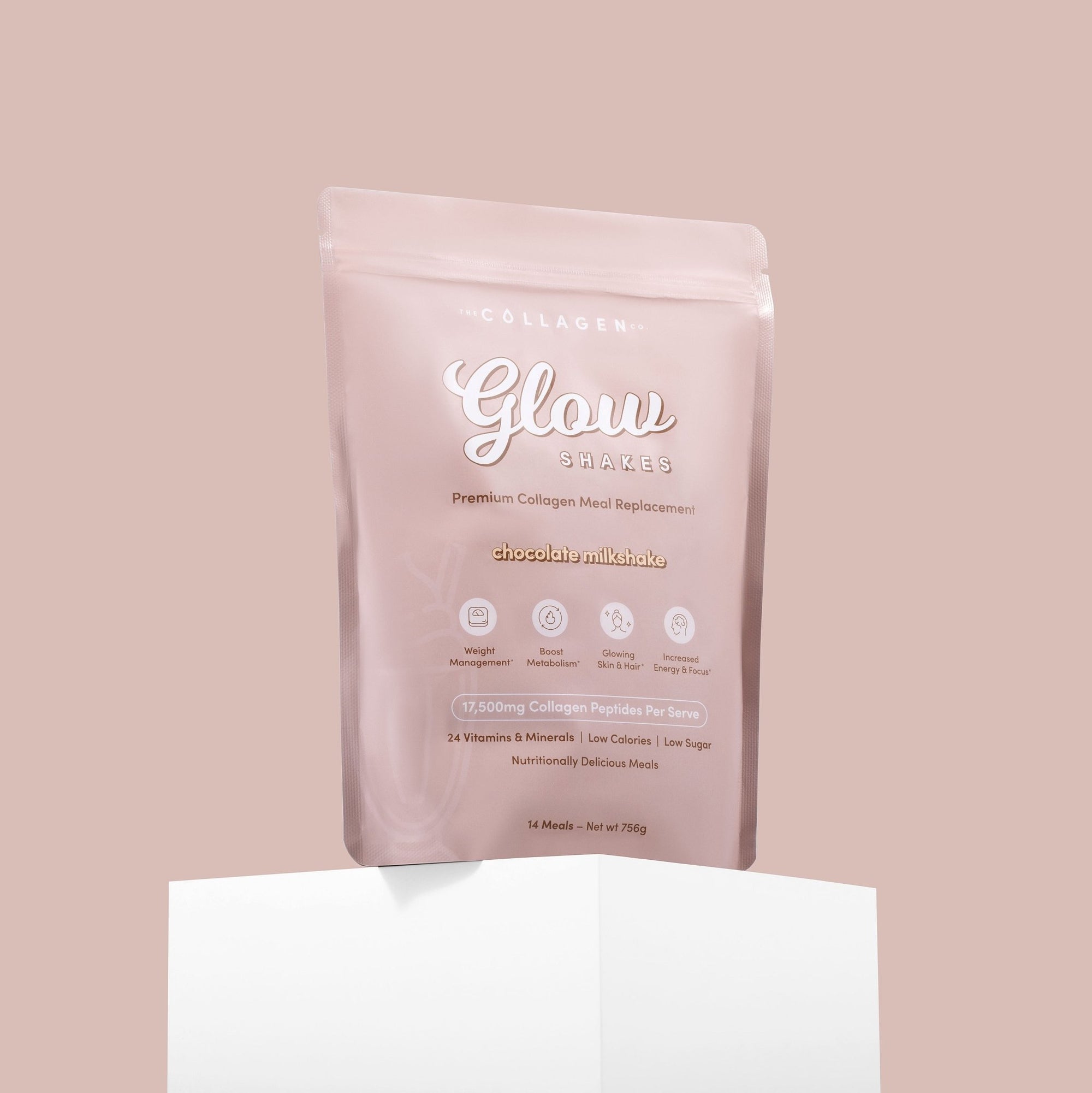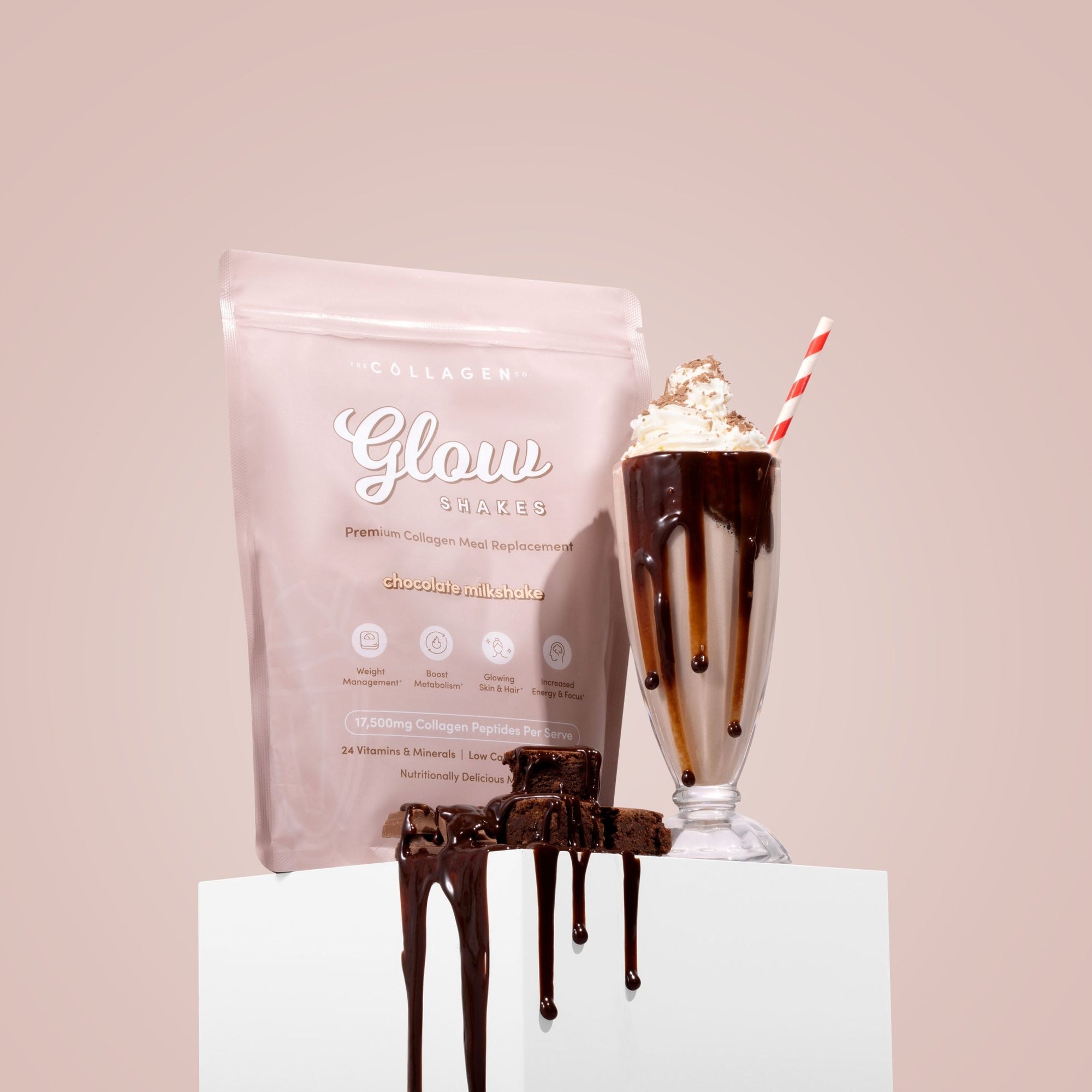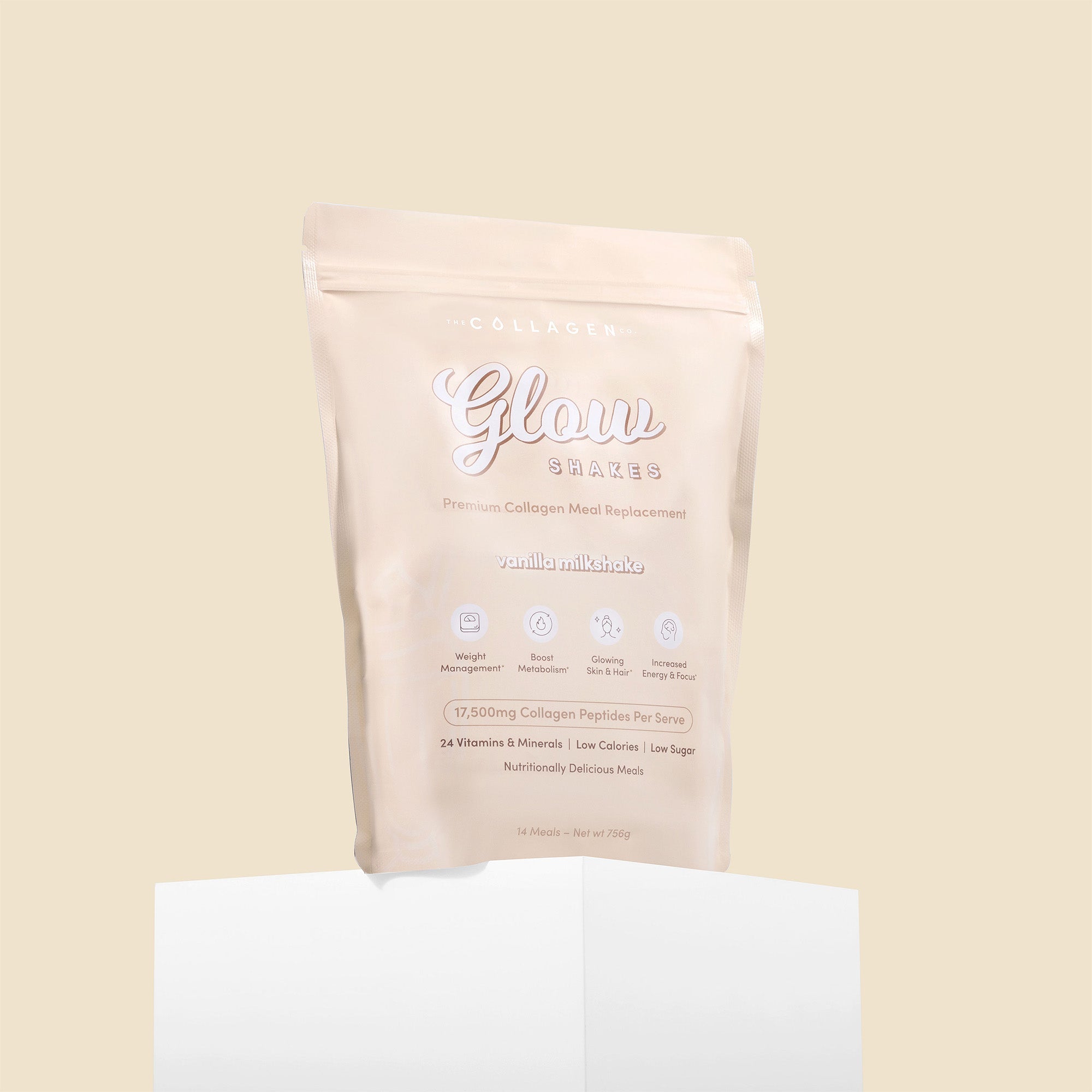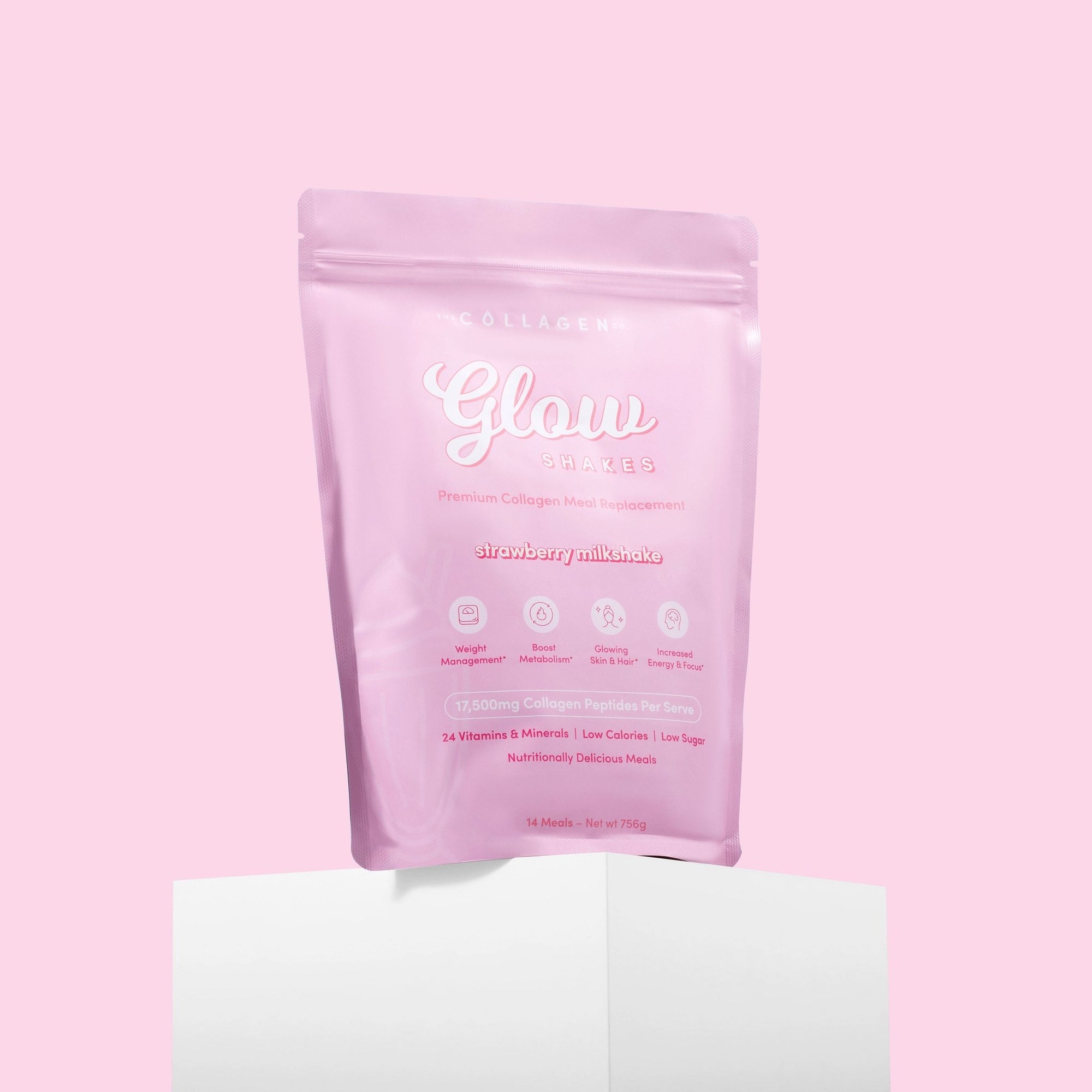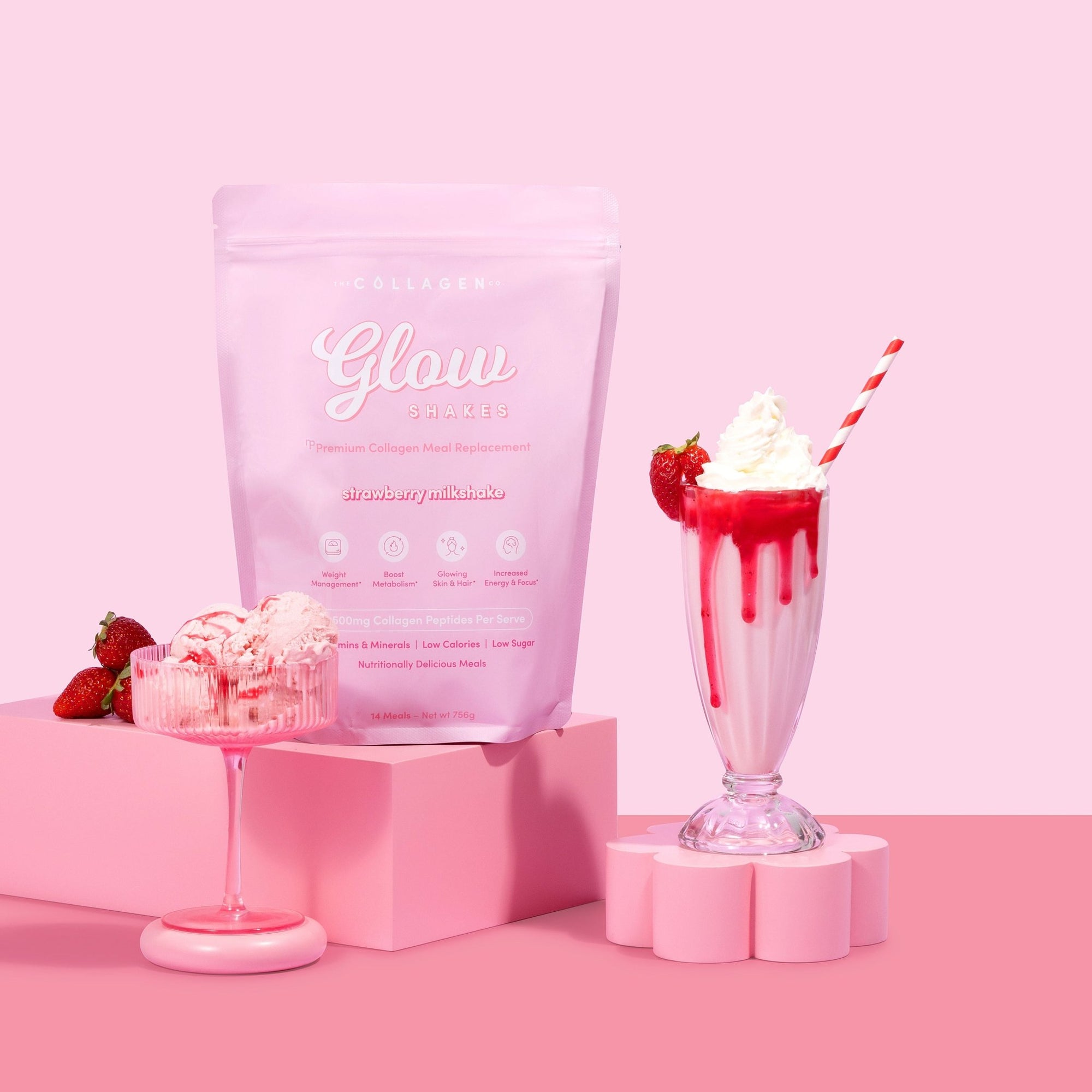How Does Collagen Give You Energy?
Posted July 2024

Sick of the usual (read: boring) tips to boost your energy?
Then here’s an unconventional yet highly effective invigorator that’ll have you feeling like you’re running on D batteries instead of those small, round batteries: collagen.
Wait, collagen? Like, the protein that provides structural support for the skin, bones, tissues, and tendons? Mm-hmm. And to answer your question, which is probably along the lines of, “How?!”, we’ll first have to understand:
Your body’s energy source
Your body’s energy “currency” is an organic compound called adenosine triphosphate (ATP).
Don’t worry. We’re not going to dive into a full-on Biology lesson; all you need to know right now is:
- ATP “releases” energy when it loses 1 of its 3 phosphate molecules, becoming adenosine diphosphate (FYI, “tri” means 3, and “di” means 2)
- Your body makes ATP from the foods you eat through a process known as “metabolism”
Now, while your body can technically produce ATP from all 3 macronutrients, which are carbohydrates, fat, and protein, its first choice will always be carbs because:
- Compared to fat, more ATP is produced per oxygen molecule and at a quicker rate (i.e., more efficient)
- Your body doesn’t store excess amino acids. So, to get ATP from amino acids, your body must break down proteins from muscle mass. This is something it doesn’t want to do because muscle mass plays a vital role in regulating liver, tissue, pancreas, bone, and cardiovascular health.
How does collagen give you energy?
So, if your body prefers to produce ATP from carbs, how would collagen — a dietary protein — benefit your energy levels?
The answer is that it does so in many indirect ways.
See, the process of getting ATP from carbohydrates involves many enzymes. Examples include:
- Amylase: Breaks down complex carbohydrates into simple sugars, such as glucose
- Glucokinase: Drives the conversion of glucose to glucose 6-phosphate (the first step of ATP production from carbohydrates)
But what’s that got to do with collagen?
Well, here: enzymes are proteins made of amino acids linked together in 1 or more polypeptide chains. Meaning? Collagen provides your body with the building blocks (amino acids) it needs to synthesize various indispensable metabolism-mediating enzymes.
Beyond that, collagen could also boost your energy levels by:
Promoting muscle mass
Remember what we said about muscle mass regulating liver, tissue, pancreas, bone, and cardiovascular health? Did you wonder why (and how) it had such wide-ranging effects on the body?
As it turns out, skeletal muscle is an endocrine organ.
So, similar to endocrine glands, like your thyroid and pituitary glands, skeletal muscle makes and releases hormones that regulate energy balance. This could explain why research consistently shows an association between low muscle mass and higher fatigue levels.
The “gold standard” method for increasing muscle mass is resistance training.
However, for best results, you’d need to pair that with an adequate dietary protein intake (because it provides amino acids, the building blocks of muscle tissue) — at least 1.6 grams per kilogram of body weight.
Doing some quick math, if you weigh 60 kg, that’ll translate to 96 grams of protein daily.
Hitting that amount through whole foods can be challenging. For reference, 300 grams of chicken breast provides 93 grams of protein. You’d still be 3 grams short.
This is where collagen powders help.
They’re like protein shakes in the sense that they offer a concentrated “protein shot” but better because collagen peptides also provide additional beauty and wellness benefits.
Encouraging healthy weight maintenance
Carrying excess weight negatively impacts your energy levels.
Collagen makes your journey to achieve a healthy weight easier by promoting:
Easing joint discomfort
This may come as a surprise, but physical activity is known to boost energy levels.
That said, a common deterrent to movement is stiff, achy joints. And what helps with that? It’s the theme of this article, so you might have already guessed it: collagen.
In addition to encouraging healthy weight maintenance, which reduces stress on joints, collagen peptides also relieve joint inflammation and pain and increase collagen synthesis in the cartilage, ligaments, and tendons for comfortable movement.
Supporting gut health
Where does your body absorb the macronutrients it needs to synthesize ATP (“energy”)?
Yep, primarily through the gut. This is why gut health is so important.
Collagen peptides foster a healthy, well-balanced gut by:
- Fortifying the gut lining with amino acids, specifically glycine, and proline, ensuring that only what’s supposed to cross into the bloodstream does (e.g., nutrients) and what’s not supposed to doesn’t (e.g., bacteria and undigested food fragments)
- Targeting inflammation in the gut, creating an environment that nourishes your “good” gut bacteria
Improving sleep quality
Getting 7 to 9 hours of good-quality sleep nightly is critical to great energy levels.
But, as we all know, that’s easier said than done. If you find yourself constantly waking up in the middle of the night, here’s a promising fix: collagen peptides. In a 2024 study, researchers found collagen peptide supplementation before bedtime:
- Reduced sleep fragmentation
- Improved cognitive function (bonus)
Um, what if your problem is not staying asleep — but falling asleep in the first place? Then may we please direct your attention to The Collagen Co’s Advanced Sleep Formula, Collagen Dream?
In addition to 5 grams of energy-boosting collagen peptides per serving, you’ll also find ingredients designed to help you fall and stay asleep, from magnesium to chamomile to valerian root.
Don’t have issues with sleeping?
We offer a range of collagen-packed products catering to different dietary preferences, health goals, and beauty goals. Take our quick quiz here to find the right collagen for you.

